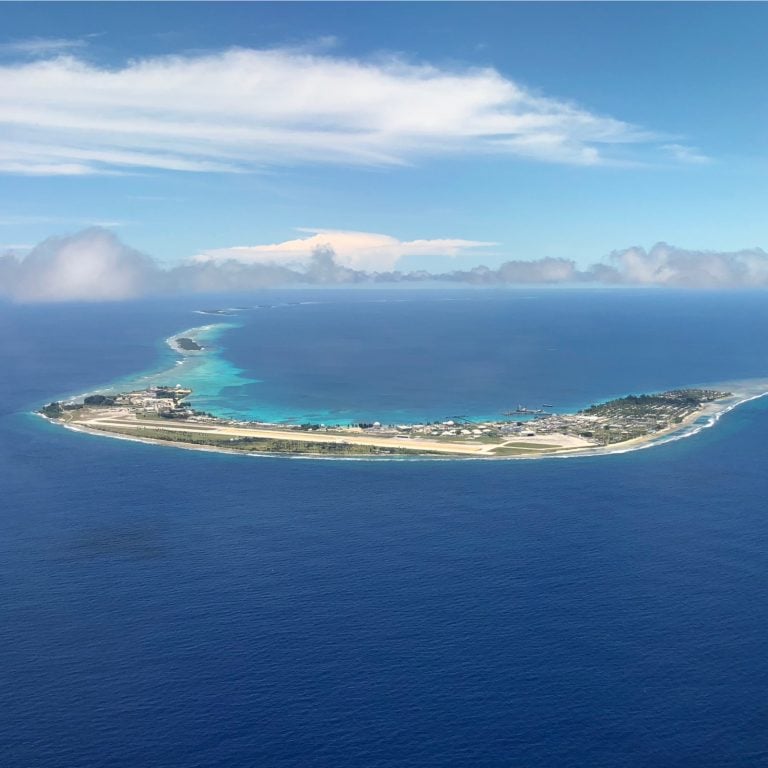Latest news about Bitcoin and all cryptocurrencies. Your daily crypto news habit.

Dr. Hilda Cathy Heine, President of the Marshall Islands, is facing a political attack for her support of a planned national cryptocurrency. If the move is successful, it may dissuade other leaders from opening up to the new technology opposed by the IMF.
Also Read: Lawyer Invests $300 Million to Build Crypto City in the Nevada Desert
No Confidence in SOV
 On Monday, eight Marshallese senators introduced a motion of no confidence against President Heine for her backing of a national digital coin. The Sovereign (SOV) was announced back in February of this year, promoted by the team behind Israeli remittances startup Neema.
On Monday, eight Marshallese senators introduced a motion of no confidence against President Heine for her backing of a national digital coin. The Sovereign (SOV) was announced back in February of this year, promoted by the team behind Israeli remittances startup Neema.
The main point emphasized by those against the national currency is that it will hurt the country’s reputation abroad. “I don’t see any indication of us being harmed … this is not an illicit activity. This is not illegal and our laws will not be tarnished,” Heine reportedly answered.
The vote on the no confidence motion has been scheduled for Nov. 12, after the opposition and the president present their respective cases on the matter in parliament.
International Pressure
 The claim against the Sovereign used by the Marshallese senators basically just echos the position of the International Monetary Fund (IMF). The Washington, D.C. headquartered organization issued a stark warning to the country’s government back in September, trying to pressure the Marshall Islands to drop the plan. It claimed that:
The claim against the Sovereign used by the Marshallese senators basically just echos the position of the International Monetary Fund (IMF). The Washington, D.C. headquartered organization issued a stark warning to the country’s government back in September, trying to pressure the Marshall Islands to drop the plan. It claimed that:
The potential benefits from [digital currency] revenue gains appear considerably smaller than the potential costs arising from economic, reputational, AML/CFT, and governance risks. In the absence of adequate measures to mitigate them, the authorities should seriously reconsider the issuance of the digital currency as legal tender.
Whatever the result of the no confidence vote next week, it can potentially generate waves far from the shores of the Marshall Islands. Other offshore jurisdictions, in regions such as the Caribbean, are known to be in different stages of exploring the technology. If the IMF succeeds in dissuading them from issuing digital assets, the field might be left only to countries already antagonistic to the West such as Iran, Venezuela and Russia.
Will this vote prove the IMF can easily bully small nations away from opening up to cryptocurrencies? Share your thoughts in the comments section below.
Images courtesy of Shutterstock.
Verify and track bitcoin cash transactions on our BCH Block Explorer, the best of its kind anywhere in the world. Also, keep up with your holdings, BCH and other coins, on our market charts at Satoshi’s Pulse, another original and free service from Bitcoin.com.
Disclaimer
The views and opinions expressed in this article are solely those of the authors and do not reflect the views of Bitcoin Insider. Every investment and trading move involves risk - this is especially true for cryptocurrencies given their volatility. We strongly advise our readers to conduct their own research when making a decision.